Solar power is one of the most popular forms of renewable energy. Solar panels are installed on rooftops or in open spaces to collect sunlight and convert it into electricity. Solar power can be used to power homes, businesses, and even entire cities. Solar energy is a clean and renewable resource that can help to reduce our reliance on fossil fuels. In this blog post, we’re going to cover the basics of solar power. We’ll explain how solar panels work and talk about the benefits of solar energy. We’ll also touch on the costs of solar panel installation and the pros and cons of solar power.
The Basics
Solar power is a renewable energy source that can be used to generate electricity, heat water or air, or produce steam for other uses. Solar power is becoming increasingly cost effective as technology improves and installation costs decrease, which means that more people are beginning to consider solar power as an option for their energy needs.
One of the biggest benefits of solar power is that it offers consumers the potential to save money on their energy bills. For example, if you have solar panels installed on your roof and generate enough electricity to meet your household’s needs, you will not need to purchase any additional electricity from the grid. Additionally, many government incentives are available for installing solar panels, which can further reduce your upfront costs.
So, what is the best way to go about installing solar panels? There are a few things you should consider before making your decision. First and foremost, you’ll want to make sure that the location of your panels will allow optimal sunlight exposure. This can be determined by taking into account factors such as climate, height of building, and orientation of panels. Second, you’ll need to decide on your budget. While there are many different types of solar panels available at various prices points, it’s important to remember that even the most expensive models typically only generate a fraction of their rated power over their lifetime. Finally, you’ll want to consult with a professional installer who knows the local market and can recommend the best options for your property.
There are a number of benefits associated with installing solar panels, but it’s important to do your research before deciding whether or not this is the right option for you. With careful planning and consideration, you can ensure that solar power is an affordable and sustainable option for your home energy needs.
Solar Power How It Works
Solar power is one of the most efficient and cost-effective forms of renewable energy. Solar panels convert sunlight into electricity, which can be used to power homes and businesses. This clean, renewable source of energy does not produce harmful emissions, making it a preferable choice over other forms of energy such as coal or oil. Additionally, solar power is becoming increasingly more affordable as technology improves and costs continue to decline. So, whether you’re looking to save money on your electric bill or reduce your carbon footprint, solar power is a great option!
There are a number of different types and sizes of solar panels, each with its own benefits and drawbacks. Residential and commercial solar systems are both common, but each has its own unique features that may be better suited for certain applications. There are also a variety of financing options available to help you get started with solar power. Whether you’re looking to go green on your own or take advantage of government incentives, there’s a solution out there for you!
Solar Power: The Benefits
Solar power is one of the most popular renewable energy sources. It has many benefits that can make it a great choice for your home or business. Here are four of the biggest:
1. Save money on your electric bill. Solar power can save you money on your electric bill in a number of ways. For example, solar panels often have a longer lifespan than traditional batteries, so they will generate electricity even when the sun isn’t shining. This means you won’t need to replace them as often and you’ll save money on replacement costs.
2. Get paid for the power you generate. Solar power is also generated using free resources – like sunlight and wind – which means you get paid for it even if you don’t use it! This is called “net metering” and it happens in nearly all states in America today, no matter what your political affiliation may be (or wasn’t).
3. Reduce your carbon footprint. One of the major benefits of solar power is that it reduces your carbon footprint. Not only does solar energy not produce greenhouse gases like traditional fossil fuels do, but installation and maintenance usually doesn’t require heavy machinery or excavation, meaning less damage to Mother Earth overall. And since solar panels last around 25 years, this impacts even more over time!
4. It can provide some security during tough economic times. In difficult financial times, people are looking for sustainable options that will help them reduce their expenses without sacrificing quality of life or causing damage to the environment.
Solar Power: The Costs
If you’re looking to reduce your carbon footprint and save money on your electric bill, solar power is a great option. Solar panels have been dropping in price, making them more affordable for the average consumer. Additionally, solar power is a free source of energy once you’ve installed the initial investment. This means that there are no upfront costs involved, which makes it an attractive option for people looking to reduce their expenses.
Solar power can also help to reduce your carbon footprint. By using solar power instead of traditional sources of energy like coal or oil, you’re helping to lower greenhouse gas emissions. In addition, by reducing your reliance on traditional sources of energy, you’re saving money on your electric bill in the long run.
There are, of course, a few caveats to consider when it comes to solar power. First and foremost, solar power is not always reliable or consistent. This means that you’ll likely need some sort of backup system in case of an outage or cloudy day. Secondly, solar panels can be expensive to install. This cost depends on the size and type of panel you choose, but it’s something to keep in mind if you’re looking at installing your own solar system.
Overall, though, solar power is a great option for people looking to reduce their carbon footprint and save money on their electric bill. If you’re ready to invest in your own system, there are a variety of options available that will fit any budget.
Solar Power: The Pros And Cons
Solar power has been receiving a lot of attention in recent years, with many people believing that it is the future of energy. This article provides an overview of the pros and cons of solar power, as well as some tips for choosing a solar panel system.
The cost of solar panels has fallen dramatically in recent years, making them more affordable for consumers. Additionally, solar power is a renewable resource that helps reduce dependence on fossil fuels. Solar panels can be used to generate electricity, heat water, or both. However, solar power is not available at night or during cloudy days.
If you are interested in learning more about installing or using solar power in your home or office building, consider speaking with a professional installer like HomeAdvisor. We can help you identify the best options for your specific needs and budget.
Solar Power FAQs
Solar power is becoming more and more popular as an option for energy production. Here are some of the benefits of solar power:
– Solar power is environmentally friendly.
– Solar power is cheaper than other forms of energy, especially when compared to traditional sources such as coal or oil.
– Solar power is reliable, with a high degree of predictability.
– Solar power can be used to produce electricity at any time of day or night, regardless of weather conditions.
To decide if solar power is right for you, take into consideration your specific needs and preferences. There are many factors that go into making this decision, including your budget and location. Furthermore, it’s important to know what the potential disadvantages are of solar power before making a commitment. These include things like variability in output (due to weather conditions), installation costs, and storage capacity limitations.
If you’re interested in installing solar power, there are a few things to keep in mind. First and foremost, make sure you have an accurate estimate of the total cost of your project. This includes not only the initial installation costs, but also ongoing maintenance fees and tax credits. Second, be aware of any potential zoning restrictions that might apply to your property. Third, know what kind of support is available from government or non-profit organizations. Finally, be prepared to commit time and energy into monitoring and maintaining your solar system.
There are a number of different types of solar panels available on the market today. Some are more efficient than others, depending on the type of sunlight they’re designed to capture. When choosing a panel type, it’s important to consider both your specific needs and preferences as well as your budget. Certain types of panels might be better suited for certain locations or orientations; for example, south-facing panels tend to produce more sunlight than north-facing ones do. Once you’ve selected a panel type and location, you’ll need to install it yourself or have someone else do it for you (depending on its complexity). Most panels come with installation instructions; however, if you encounter any problems during installation or after it’s complete, don’t hesitate to call a professional!
Once your solar system is installed and operating properly, it’s important to keep an eye on its overall condition by regularly inspecting all components (panels included). This includes checking for damage caused by weather conditions or other forms of wear & tear over time. Furthermore, make sure you update your system’s firmware when new updates become available – this can help improve performance and ensure optimal functionality throughout the lifespan of your equipment.
Solar Power System, Solar Panel Installation, How To Install Solar Panels, Solar Energy, Renewable Energy
The cost of solar power has decreased significantly in recent years, making it more affordable for consumers. This is great news for those looking to reduce their carbon footprint, as solar energy is a renewable resource. Additionally, solar panel installation is becoming easier and more commonplace, opening up the option for more people to install solar power systems.
Solar energy is a renewable resource – meaning that it will continue to provide electricity even after other sources have run out. In addition, solar power systems can provide significant savings on energy bills; this makes them a worthwhile investment for consumers. Finally, solar power systems are environmentally friendly; this means that they do not produce emissions that contribute to climate change.
If you are interested in installing a solar power system, there are a few things to keep in mind. First, it is important to find an installer that is experienced and qualified. Second, make sure to obtain accurate information about the cost of a solar power system. Third, be prepared to schedule maintenance and upgrades regularly; this will ensure that your system continues to provide benefits for years to come. Finally, take advantage of tax incentives available for solar energy systems; this can help offset some of the costs associated with installation.
Final Thoughts
Solar power is one of the most popular forms of renewable energy. Solar panels are installed on rooftops or in open spaces to collect sunlight and convert it into electricity. Solar power can be used to power homes, businesses, and even entire cities. Solar energy is a clean and renewable resource that can help reduce our reliance on fossil fuels.
In this blog post, we covered the basics of solar power. We explained how solar panels work and talked about some of the benefits of solar energy. We also touched on the costs of solar panel installation and discussed some of the pros and cons of solar power.
If you’re interested in learning more about solar power or installing a system in your home or office building, consider speaking with a professional installer like HomeAdvisor. We can help you identify the best options for your specific needs and budget.

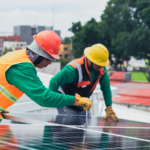
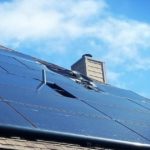

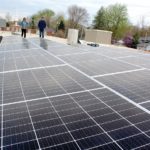
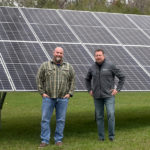

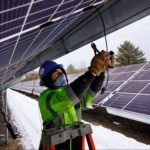
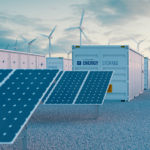
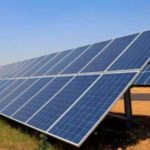


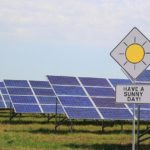
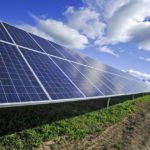

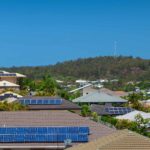
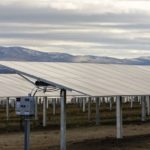
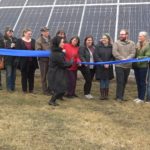



Recent Comments